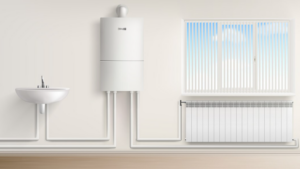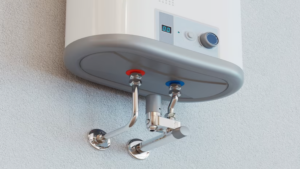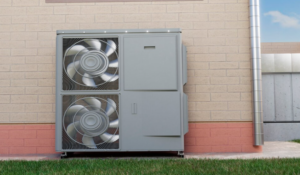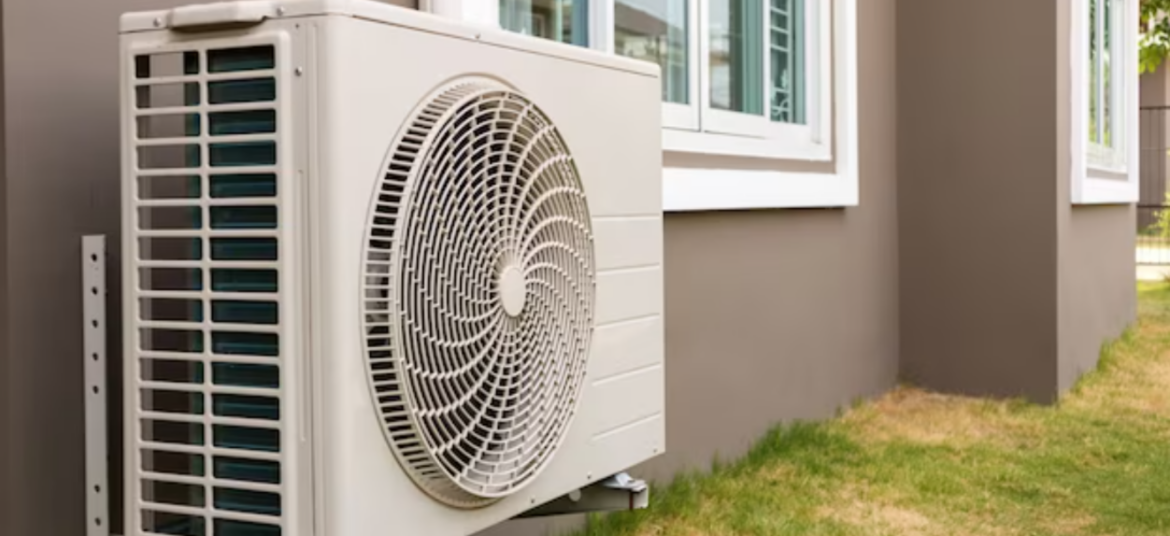In the quest for energy efficiency and sustainable living, homeowners are increasingly turning to innovative technologies to make their homes more environmentally friendly. One such technology that has gained prominence in recent years is heat pumps. These versatile systems offer an energy-efficient alternative for both heating and cooling, promising to not only save on utility bills but also reduce carbon footprints.
Heat pumps can be an excellent choice in a variety of applications, and for both new homes and retrofits of existing heating and cooling systems. They are also an option when replacing existing air conditioning systems, as the incremental cost to move from a cooling-only system is often quite low.
Given the wealth of different system types and options, it can often be difficult to determine if a heat pump is the right option for your home. In this blog, we’ll explore what heat pumps are and how they can transform your home into an energy-efficient haven.
Understanding Heat Pumps
At its core, a heat pump is a device that moves heat from one place to another. Unlike traditional heating and cooling systems that generate heat (or cool air) directly, heat pumps transfer heat between the indoors and outdoors. This process is accomplished through the use of refrigerant, a substance that can absorb and release heat efficiently.
A heat pump is an electrically driven device that extracts heat from a low temperature place (a source) and delivers it to a higher temperature place (a sink). To understand this process, think about a bicycle ride over a hill.
No effort is required to go from the top of the hill to the bottom, as the bike and rider will move naturally from a high place to a lower one. However, going up the hill requires a lot more work, as the bike is moving against the natural direction of motion.
In a similar manner, heat naturally flows from places with higher temperatures to locations with lower temperatures. A heat pump uses additional electrical energy to counter the natural flow of heat and transfers the energy available in a colder place to a warmer one.
How A Heat Pump Works

So how does a heat pump heat or cool your home? As energy is extracted from a source, the temperature of the source is reduced. If the home is used as the source, thermal energy will be removed, cooling this space. This is how a heat pump operates in cooling mode, and is the same principle used by air conditioners and refrigerators.
Similarly, as energy is added to a sink, its temperature increases. If the home is used as a sink, thermal energy will be added, heating the space. This system is fully reversible, meaning that it can both heat and cool your home, providing year-round comfort.
In cold weather, the pump extracts heat from the outside air or ground, even when temperatures are low. The refrigerant absorbs this heat and is compressed to increase its temperature. The hot refrigerant is then circulated through the indoor unit, releasing the heat into the home.
During warmer months, the process is reversed. The pump extracts heat from the indoor air and releases it outside. The refrigerant, now in a low-pressure state, absorbs heat from inside the house keeping it cool in the process.
Sources And Sinks For Heat Pumps
Selecting the source and sink for your heat pump system goes a long way in determining the performance, capital costs, and operating costs of your system. Two sources of thermal energy are most used for heating homes with heat pumps.
Air-Source: The pump draws heat from the outside air during the heating season and rejects heat outside during the summer cooling season. It may be surprising to know that even when outdoor temperatures are cold, a good deal of energy is still available that can be extracted and delivered to the building. For example, the heat content of air at -18°C equates to 85% of the heat contained at 21°C. This allows the heat pump to provide a good deal of heating, even during colder weather.
Ground-Source: A ground-source heat pump uses the earth, ground water, or both as the source of heat in the winter, and as a reservoir to reject heat removed from the home in the summer.
These heat pumps are less common than air-source units but are becoming more widely used in all provinces of Canada. Their primary advantage is that they are not subject to extreme temperature fluctuations, using the ground as a constant temperature source, resulting in the most energy efficient type of heat pump system.
Advantages Of Heat Pumps

There are a great deal of advantages that come along with heat pumps. Heat pumps are known for their high energy efficiency, as they move existing heat rather than generating it. This efficiency translates into lower energy bills and reduces environmental impact.
The dual functionality of heat pumps serve both heating and cooling purposes, eliminating the need for separate systems. The versatility of heat pumps makes them suitable for year-round use.
There are major environmental benefits to using heat pumps, which make them a great choice for people that are working towards creating a more sustainable lifestyle. By relying on the heat present in the air or ground, heat pumps can significantly reduce reliance on fossil fuels, contributing to lower carbon emissions. Heat pumps provide consistent and even heating or cooling, maintaining a comfortable indoor environment.
Many governments and utilities offer incentives or rebates to homeowners who install energy-efficient heat pump systems, making them a cost-effective choice. The Canadian Greener Homes Grant is a substantial rebate initiative that provides additional support for people who have heat pumps installed in their homes. Provincial Smart Home Services can help you with any questions that you might have in regards to your new heat pump rebate.
Considerations For Installation
While heat pumps offer numerous benefits, it’s essential to consider factors such as the climate, insulation levels, and the size of your home. Additionally, professional installation and regular maintenance are crucial to ensuring optimal performance and longevity.
Conclusion
As the world continues to prioritize sustainable living, heat pumps emerge as a viable and efficient solution for home heating and cooling. By harnessing the power of existing heat sources, these systems not only contribute to a greener planet but also offer financial savings to homeowners. Consider making the switch to a heat pump and join the movement toward a more energy-efficient and eco-friendly home. Provincial Smart Home Services is here to help with any questions you may have about making the switch to heat pumps. Call one of our expert energy advisors and they will help you decide if this is the right step for you.
Related Posts

Heat Pump Water Heaters: Your Complete 2024 Guide
Considering a heat pump water heater in 2024? Our guide details operation, benefits, top brands, costs, sizing, and upkeep tips.

8 Quick and Easy Water Heater Maintenance Tips
Discover water heater maintenance tips and tricks to help you save money and make your home more energy-efficient.

Heat Pump Rebate Ontario for 2024
The heat pump rebate Ontario can help you save thousands of dollars in the new year as you continue on your energy saving journey.


No Comments